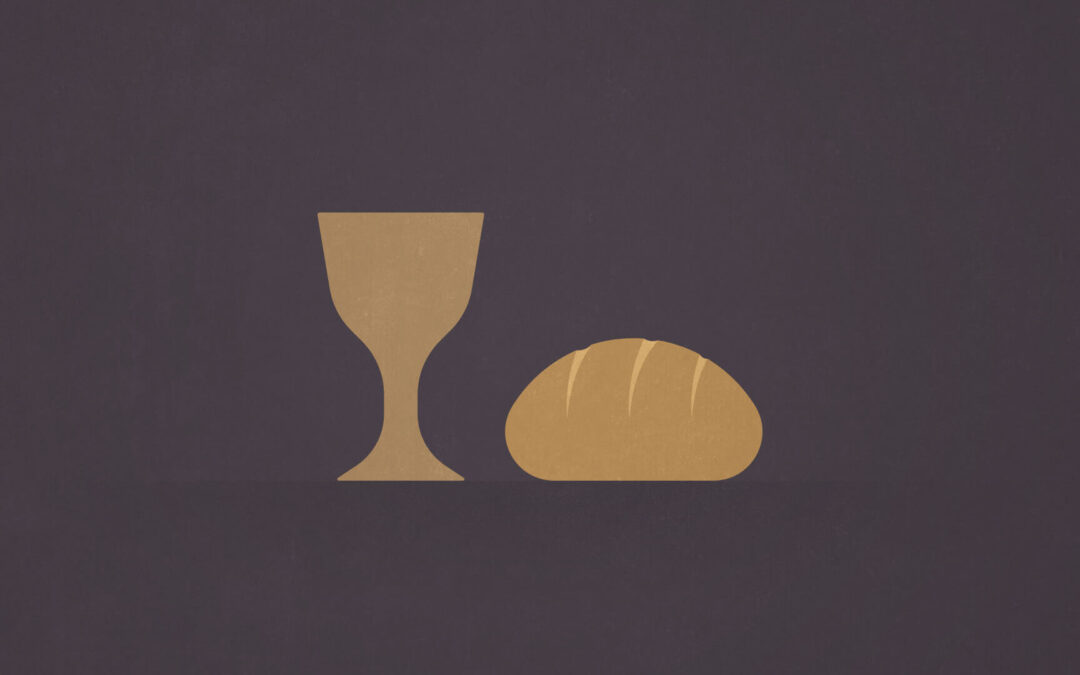Is the Lord’s Supper important? Where you go on Sunday – is the Lord’s Supper a significant, well attended and deeply cherished activity of the local church? Or is it sort of optional, hit-or-miss, once-in-a-while, an occasional or annual or quarterly type of thing? What about you personally – where does the Lord’s Supper rank in your list of priorities and spiritual commitments?
Of all the things that would have been on the Lord’s mind the night before He was crucified, isn’t it significant that He took the time with His little band of devoted followers to establish what we know today as the Lord’s Supper!
The very same night Judas was executing his betrayal plot, Jesus met with His disciples in the Upper Room and held bread in His hands and said: “This is my body which is given for you; this do (keep on doing is the thought) in remembrance of me.” (Luke 22:19) Then He took a cup of wine and said to His disciples: “This is my blood of the new covenant, which is shed for many for the remission of sins.” (Matthew 26:28) “This do in remembrance of me.” Or, “DO this in remembrance of me.” Sounds like a commandment from the Saviour’s lips!
Later the Apostle Paul wrote about the Lord’s Supper. Of course, he was not in the Upper Room that night with Jesus and the disciples – in fact, at that time, he was an avowed enemy of Jesus, known as Saul of Tarsus. Sometime after the resurrection of Christ, as Saul of Tarsus was hunting down believers in an effort to wipe out Christianity, he was stopped in his tracks on the Damascus Road. The rest is history.
Saul of Tarsus was saved and he became an Apostle of our Lord Jesus Christ. Of all the things the Lord would want to reveal to His new convert in the coming months and years, isn’t it significant that the Lord directly told the newly saved Apostle Paul about the emblems (symbols) of His body and His blood – the bread and the cup? Paul in turn passed along the Lord’s commandment regarding the ‘memorial service’ to the Christians in Corinth. (1Corinthians 11:23) Then we read:
For as often as you eat this bread and drink the cup, you proclaim (announce) the Lord’s death until He comes. 1 Corinthians 11:26
It says: “As often as you eat this bread.” It doesn’t say: ‘whenever’ or ‘as seldom’ but the thought seems to be: each and every time you do this, you are announcing to the world the tremendous cost of the forgiveness of sins – nothing less than the death of the Lord Jesus Christ.
How often was the Lord’s Supper or the Breaking of Bread practiced by the early churches? Every Sunday. The first day of each week. Consider some insights from Paul’s itineraries – especially how he found it noteworthy to mention seven-day periods.
Troas – Act 20:6-7 “…where we stayed for seven days. On the first day of the week, when we were gathered together to break bread…”
Tyre – Acts 21:4 “…Having sought out the disciples, we stayed there for seven days…”
Puteoli – Acts 28:14 we came to Puteoli. There we found brothers and were invited to stay with them for seven days
Even though the local church in Corinth had some serious problems and they were even abusing the Lord’s Supper, yet they gathered once a week. (1Corinthians 11:17-22, 16:1-2)
Not that we need historical evidence to make the case for the weekly Lord’s Supper, but there is evidence that this was the early practice of the Church over the first few centuries after Christ’s ascension.
The weekly remembrance of the Lord every Sunday is mentioned in the Didache (ca. 95 A.D.); Justin Martyr (ca. 150 A.D) and the early church ‘fathers’ as they are often called – Barnabas, Irenaeus, Clement of Alexandria, Origen and Cyprian – all of these in their writings refer to the practice of meeting every Sunday to observe the Lord’s Supper. (B.W. Johnson, People’s New Testament)
When will the bread and the cup no longer be needed? When Jesus Himself returns. We will not need symbols or emblems then. We will have Him. We will be with Him and we will see Him as He is.
Have you obeyed His commandment: “This DO in remembrance of Me?” Some churches and some people who are deeply committed to Bible teaching and evangelism and, for sure, many other positive and appealing things could be said about them – but lacking is their priority to keep this commandment of the Lord on a weekly basis.
Have you honoured the Lord’s desire in this regard? Are you a thankful participant in the weekly remembrance of the death of our Lord Jesus Christ? Have you found a local church that makes the Lord’s Supper a significant weekly function?

